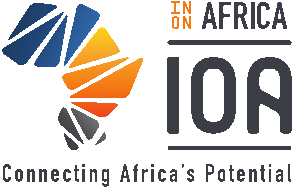Armour our learners for better futures
By Cekuse Wandise, 22, Gauteng

High school is arguably a beautiful place. Many lifetime friendships are conceived there, formed, and nurtured only to be separated after matric and rekindled on social media later on in life. For some, high school is horrible, a place of the devil. Some don’t even make it out. However handsome or horrid the place can be, it does possess a ubiquitous common denominator that is education. “A key to success” as popularly dubbed. Albeit cliché, this phrase is especially accurate as modern skills of survival require literacy in order to make it in life. ‘Make it’ in terms of securing a job somewhere or opening your own business, with education as a locksmith that provides necessary keys.
However, most school leaving teenagers are ill equipped on how to navigate their post-matric journeys due to the lack of preparation or exposure to things they might find interesting other than low performed maths and physics results. For decades, learners have been told to choose maths and physics as major FET subjects mainly because they account for scarce skills. This rhetoric sadly creates a divide between learners and teachers in high schools all over the country. It also inspires a stereotypical bias that those learners who do not choose scarce skill subjects are somehow dumb or lazy. What really should be looked at here is learner capability and career guidance counselling prior to choosing FET subjects.
Additionally, youth unemployment in South Africa is at an all-time high despite high schools issuing matric certificates and universities conferring degrees and diplomas every year. Apart from that, low levels of literacy are booming in the country, not only from uneducated kids and adults but from school leaving students as well, especially in townships and rural areas. The problem it seems, is lack of English comprehension. This assertion has long been corroborated by Steven le Roux, chief executive of non-profit organisation Project Literacy who once told Independent Online News (IOL, 2018) that “We increasingly find that the youth and adults who come to our learning centres are people who are above Grade 9 in school level but have language, literacy and communication levels (especially in English) way below what it should be.” Le Roux added that these people are unable to engage with their further education, and this can account for the very low throughput rate at FET and vocational colleges. With that said, it is safe to speculate that the education system is failing learners from disadvantaged communities
Furthermore, with breath-taking youth unemployment rates, the South African government encourages the youth to open their own businesses and not “rely” on the government for hand-outs, a sentiment unanimously echoed by other successful entrepreneurs. I despise this rhetoric because it comes off as obtuse and ignorant because it feeds into the stereotype that South African youth are lazy while erasing many socioeconomic factors that contribute towards the formation of such stereotypes.
It is totally unfair to encourage young people to venture into entrepreneurship without equipping them with necessary knowledge and skills to further explore such suggestions. And, some of the programmes that are designed to “assist” the youth with exploring entrepreneurship are too complicated to get into which render them esoteric in a way. Or, as in the case of NYDA, assist a fraction of the population so small and urbanised it seems they do not exist at all. If the government, especially the current administration is so pro-entrepreneurship, it would be wise and pragmatic to introduce entrepreneurship to the schooling curriculum so that learners can be fairly equipped with enough knowledge to decide for themselves whether to venture into business after matric or go to university. After all, not everyone is interested in opening a business. Therefore, introducing practical programmes such as agriculture and catering back into our education system, especially in townships and rural areas would be useful. Such initiatives could really do a mile on assisting learners to pave their bright futures, thus equipping them with essential skills to navigate their post-matric futures. That way, perhaps high school could be a beautiful place for every learner, eventually.
Sharing is caring!
Help us spread the word about Voices Unite:


